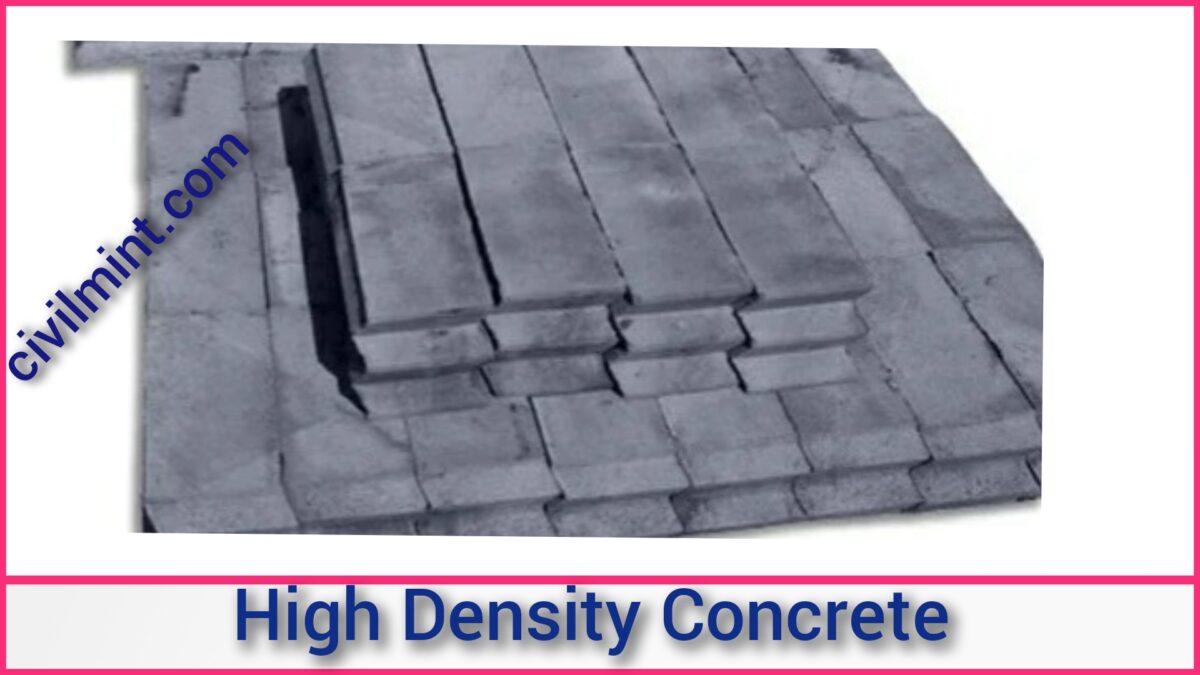Table of Contents
Definition
High density concrete is used in the construction of radiation shields. It is also called as heavy weight concrete.
Explanation
High density concrete is made by using natural heavy weight aggregates. The unit of heavy weight aggregates are 1.5 times higher than that of normal weight aggregates. The unit weights are in the range of 33.60 to 38kN/m3.

Concrete is highly economical material for biological shielding. It is used in various applications such as nuclear power plants, atomic research and other testing facilities.
High density concrete possess low space and provide high strength. Hence, reduction in the thickness of
the shield is accomplished by the use of high density concrete.
Concrete is suitable material that possesses the needed characteristics for both neutron and gamma ray attenuation, has satisfactory mechanical properties, and has a relatively low initial as well as maintenance cost.
Concrete is one of the best shielding material. Concrete is a mixture of hydrogen and other light nuclei, and nuclei of higher atomic number, and can be produced within a relatively wide range of density, it is efficient in
absorbing gammas, slowing down fast neutrons, and absorbing resonance and slow neutrons.
Concrete is a great shielding material. Since the hydrated cement’s chemically coupled hydrogen and oxygen content successfully reduces the neutron flow.
One of the main issues with mix proportioning is segregation of fresh concrete due to the high density of aggregate particles. It is preferable to create both fine and coarse aggregates from high-density rocks due to their large unit weight and low inclination to segregate.
Advantages Of High Density Concrete
- It has immense potential to reduce the radiation of neutrons and gamma rays.
- High intensity radiation is converted into very weak radiation.
- High density concrete has excellent strength and durability.
- Concrete can be molded into any shape so it is easy to form.
- Very low maintenance cost.
- High Design Life.
Disadvantages Of High Density Concrete
- It does not flow in form and must be placed in each discrete. It must be compacted in place with minimum vibration.
- Expensive compared to traditional concrete.
- There is a need to hire highly skilled workers.
- Construction cost is high.
